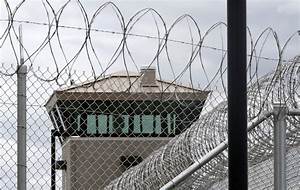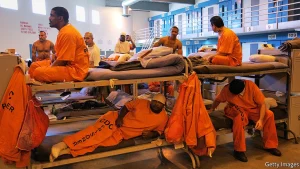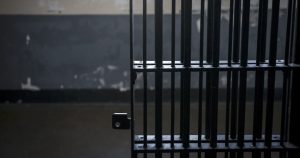I have been told that the officers are trained to view each inmates as sub-humans worthy of only punishment, not rehabilitation. Inmate abuse is taught in the training academies—from excessive force, to psychological torture, and assault. Restrictive lines of communication and the fear of retaliation are why this subject has not been fully exposed or addressed.

Correctional officers’ duty is to protect inmates and ensure the security of correctional institutions. But the truth is that many of them subject inmates to years of abuse, harassment, and intimidation. Even after individuals leave prison, the mental scars left by this treatment leave former inmates mistrusting the entire justice system, especially the police officers on the outside who appear no different from the correctional officers.
The media and prison officials would rather have people believe that everyone in prison belongs there, that all inmates are violent and a menace to society. I used to think the same thing until I found out that the majority of people are here for non-violent crimes. So much time and money have been spent punishing and isolating offenders that prison has become counterproductive.

The state of prisons may be blamed on operations. The perpetual stigma of violence secures plenty of funding for batons, pepper spray, and other equipment used to intimidate and abuse inmates. Without the stigma, there would be less of a need for correctional officers to behave this way, to use these tools, and to spend of millions of tax dollars. Correctional officers are also part of powerful unions allied with politicians and political parties. While the unions do not openly embrace misconduct, they do believe in unquestionable solidarity. Blindly standing behind their officers regardless of the circumstances has birthed a code of silence, which makes officers view reporting another officer’s misconduct and abuse as tantamount to the most egregious betrayal. So, the abuse and misconduct gets ignored.
Imagine prisons with properly trained officers. In this dream world, the role of correctional officers is be rehabilitative This means officers train to identity inmate behavioral issues and work with them to correct behaviors. It means officers train on constructive conflict resolution, reducing violence and fostering inmates’ trust. The mentality of “Us vs. Them” Is be replaced with a question: “How do we help them?”
A rehabilitative environment would have a major impact on violence both inside and outside the prison system.
In my head, I know I see differently from many of the inmates I’m housed here with.
Monochromatic prison walls are the perfect metaphor for my childhood—constantly devoid of life, inspiration, and love.

I will not just exist. I will persist until I succeed.
